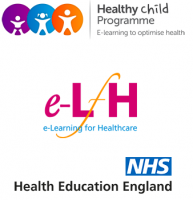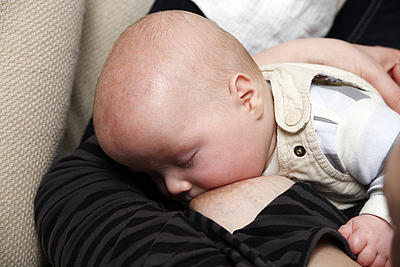Health Promotion: Breastfeeding course



This session aims to enhance the learner’s knowledge of how to promote breastfeeding by exploring factors that influence breastfeeding initiation, duration and exclusivity.
Learning objectives
By the end of this session you will be able to:
- Identify factors that enable women to breastfeed, or interfere with their ability to initiate and continue breastfeeding, to include socio-cultural context, health service barriers and the promotion of breast milk substitutes
- Explain the role of national and international policy and legislation in promoting, protecting and supporting breastfeeding
- Identify evidence-based interventions that have the potential to enable women to breastfeed
This session will give you the necessary information to enable women to breastfeed and to explain to them the disadvantages of formula feeding.
Before commencing this session you should complete the following HCP session:
- Health Promotion/Basic Principles of Health Promotion (402-0058)
Mary qualified as a nurse in 1977 (University of Edinburgh), and as a midwife (Edinburgh) in 1978. She was awarded a PhD in 1982, having spent several years with the MRC Reproductive Biology Unit, conducting clinical research in breastfeeding.
Mary worked as a midwife in Oxford and spent several years teaching in Alberta, Canada before taking up post as Director of the Midwifery Research Initiative at the National Perinatal Epidemiology Unit in Oxford (1988).
She was appointed as Professor of Midwifery Studies in the University of Leeds (1994), before taking up her current post as Professor of Mother and Infant Health in the University of York (2004).
She established and currently directs the multidisciplinary Mother and Infant Research Unit, where she leads a programme of work on maternal and infant nutrition, including research and evidence-based policy and practice.
Mary has conducted research and systematic reviews on infant feeding for NICE, the NIHR Health Technology Assessment programme, the Cochrane Collaboration, and the Department of Health.


Following qualification as a midwife in Bristol in 1981, Alison experienced all aspects of clinical midwifery working in Bristol and Middlesbrough in the UK.
She spent three years working as a volunteer in Malawi, Central Africa, in the role of midwife-in-charge and midwifery tutor at a small rural mission hospital. Alison qualified as a midwife teacher at the University of Nottingham and was a midwifery lecturer at the University of Teesside until 2006.
Alison gained an MA in Applied Educational Studies at the University of York in 1993. In 2005 she was seconded to the Mother and Infant Research Unit at the University of York. In 2006, she was awarded a National Institute of Health Research Doctoral Fellowhship. Her doctoral research explored the breastfeeding experiences and support needs of women of Bangladeshi origin living in the UK.
Alison is currently employed as a research fellow at the Mother and Infant Research Unit.
- Toileting : Bladder and Bowel Control course
- Posted By eIntegrity Healthcare e-Learning
- Posted Date: 2024-12-21
- Location:Online
- This session describes the process through which children gain continence. In addition this session ...
- Hard to Reach and Seldom-heard Families course
- Posted By eIntegrity Healthcare e-Learning
- Posted Date: 2024-12-21
- Location:Online
- This session will explore what is commonly understood by the term ‘hard to reach’ and what this unde...
- Looked After Children Part 1 Challenges and Princi...
- Posted By eIntegrity Healthcare e-Learning
- Posted Date: 2024-12-21
- Location:Online
- In this session and the next session 'Safeguarding/Looked After Children Part 2', we will explore th...
- Vulnerable Infants and Children course
- Posted By eIntegrity Healthcare e-Learning
- Posted Date: 2024-12-21
- Location:Online
- This session will look at types of vulnerability that you are likely to encounter in children and yo...
- Safeguarding Overview course
- Posted By eIntegrity Healthcare e-Learning
- Posted Date: 2024-12-21
- Location:Online
- This safeguarding session will help you decide what level of child protection training you need and ...








